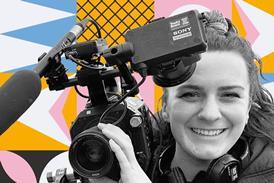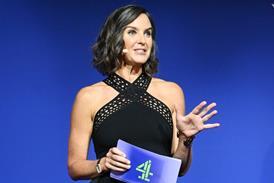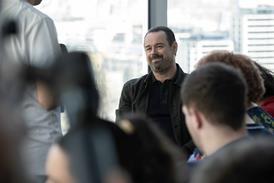At the Broadcast Technology Summit last week the extremely witty and insightful Phil Laven, a former EBU director of the technical department, revealed to a slightly sparse audience his ten suggestions for innovations that will change the world.
It was an excellent presentation but as so few people got to see I thought I would provide you with a summary of what he said.
Before I start I must pass on Phil's warning to delegates. “It's OK to predict but never try to predict when.” I thought I'd better get that in early in case any of you are going to email me or Phil with ‘that'll never happen.'
Anyway, here goes:
Infinite storage of audio- If, every 18 months, RAM speed increases in speed by a factor of two and storage capacity doubles then by 2018 we'll have 100 gig of data in our pockets with which to store music on.
A head-mounted camera that films your whole life- pretty self explanatory. It's like a blog only it's pictures and you can share your first hand experiences with the world from the cradle to the grave.
A universal ‘undo' button- not just on technology applications, but in real life too. Imagine if you could erase telling your boss how much you hated him at the Christmas party... .
Automatic generation of metadata- Metadata makes the world go round but it has to be added by a human. If you do make a film of your like (see 2) how will you be able to find scenes unless you have metadata? But a lifetime of footage will require you to spend 25% of your time adding metadata. Automatic metadata would solve this!
Improved motion portrayal- a higher frame rate is required. 25fps is not enough. Most flat panel displays are set to optimise light in showroom. 5.1 Built in test cards on displays- “It would be nice to be able to test the colour of a display.”
Better batteries
New forms of video compression- You can throw 97% of data away and still get a good picture (apparently). The move to HD underlines the weakness of current compression systems in that they provide great stationary pictures but blurred moving ones.
Limit the range of radio propagation- signal within radio spectrum spreads all the shop, interfering with other frequencies. It would be nice for the range to just stop at the required point.
3D TV- we're nearly there already. Or, if that doesn't work, how about...
Full holographic TV- something that doesn't require glasses that you can actually walk into and around.
It might sound ‘stunningly difficult' but in the 1920s, colour TV was described as ‘stunningly difficult' so you never know.
On a personal level I particularly liked the universal undo button but from a industry point of view, better batteries would definitely be a winner. And so would improved compression standards.
If you want to comment on any of Phil's predictions please feel free to do so below.
And, if you get the chance to go along and see Phil do a turn on stage at a trade show or exhibition, try your best to make it. It will definitely be worth your while.




























No comments yet